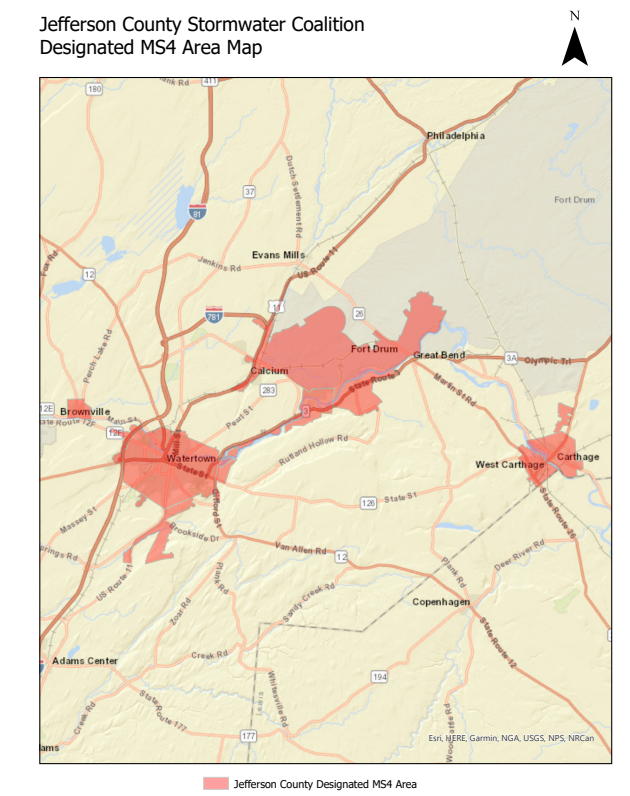What is Stormwater?
What is Stormwater?
Stormwater is water from rain or melting snow that doesn’t soak into the ground but runs off into waterways. It flows from rooftops, over paved areas and bare soil, and through sloped lawns while picking up a variety of materials on its way. As it flows, stormwater runoff collects and transports soil, animal waste, salt, pesticides, fertilizers, oil and grease, debris and other potential pollutants. The quality of runoff is affected by a variety of factors and depends on the season, local meteorology, geography and upon activities which lie in the path of the flow.
What’s the Problem?
As it flows, stormwater runoff collects and transports pollutants to surface waters. Although the amount of pollutants from a single residential, commercial, industrial or construction site may seem unimportant, the combined concentrations of contaminants threaten our lakes, rivers, wetlands and other water bodies. Pollution conveyed by stormwater degrades the quality of drinking water, damages fisheries and habitat of plants and animals that depend on clean water for survival. Pollutants carried by stormwater can also affect recreational uses of water bodies by making them unsafe for wading, swimming, boating and fishing. According to an inventory conducted by the United States Environmental Protection Agency (EPA), half of the impaired waterways are affected by urban/suburban and construction sources of stormwater runoff.
Examples of Pollution in Stormwater
- Nutrients such as phosphorus and nitrogen can promote the overgrowth of algae, deplete oxygen in the waterway and be harmful to other aquatic life.
- Bacteria from animal wastes and illicit connections to sewerage systems can make nearby lakes and bays unsafe for wading, swimming and the propagation of edible shellfish.
- Oil and grease from automobiles causes sheen and odor and makes transfer of oxygen difficult for aquatic organisms.
- Sediment from construction activities clouds waterways and interferes with the habitat of living things that depend upon those waters.
- Careless application of pesticides, herbicides and fertilizers affect the health of living organisms and cause ecosystem imbalances.
- Litter damages aquatic life, introduces chemical pollution, and diminishes the beauty of our waterways.
What is a MS4?
A MS4 (Municipal Separate Stormwater Sewer System) is a conveyance or system of conveyances that is:
- owned by a state, city, town, village, or other public entity that discharges to waters of the U.S.,
- designed or used to collect or convey stormwater (e.g., storm drains, pipes, ditches),
- not a combined sewer, and
- not part of a sewage treatment plant, or publicly owned treatment works (POTW).
To prevent harmful pollutants from being washed or dumped into MS4s, certain operators are required to obtain National Pollutant Discharge Elimination System (NPDES) permits and develop stormwater management programs (SWMPs). The SWMP describes the stormwater control practices that will be implemented consistent with permit requirements to minimize the discharge of pollutants from the sewer system.
For more information https://www.epa.gov/npdes/stormwater-discharges-municipal-sources

